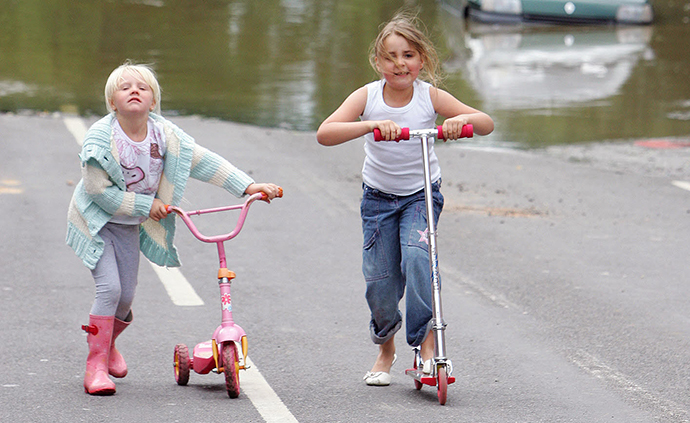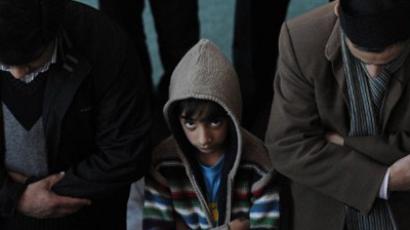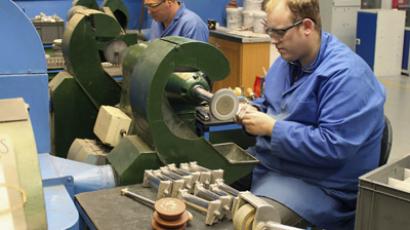Suffer the children: 1 in 4 UK kids to live in poverty by 2020 - report
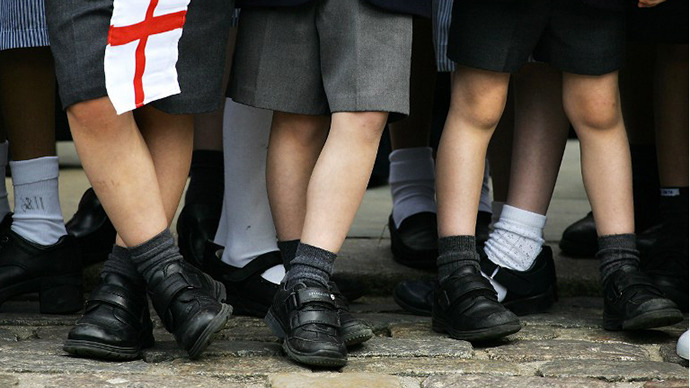
Nearly one-quarter of British children will be living in poverty by the year 2020, a new report has predicted. PM David Cameron pledged that child poverty would be gone by this time, yet some of the government's policies seem to exacerbate the crisis.
Research by the Institute for Fiscal Studies (IFS)
estimated that the UK government’s budgetary decisions in recent
years will reverse improvements in child poverty rates made over
the previous 10 years. By 2020, approximately 3.4 million children
– about 1 in 4 children – will be living in poverty, nearly 1
million more than the current figure.
"Tax and benefit reforms introduced since April 2010 can
account for almost all of the increases in child poverty projected
over the next few years," IFS said.
In 2007, David Cameron committed his party to addressing child poverty, saying that “Ending child poverty is central to improving child well-being.” The Child Poverty Act was passed in 2010, committing both current and future governments to take action to eliminate child poverty.
But the results are apparently the opposite: "The IFS verdict
is clear – by both internationally recognized measures, this
government is set to plunge over 1 million children into poverty by
the end of this decade, undoing all the good work of the last
Labour government." Liam Byrne, the shadow work and pensions
secretary, told Huffington Post.
Children in poverty are considered to be those from households with a yearly income below 60 percent of the national average. The IFS examined rates using two indicators: The first relative to what the median income is predicted to be in a given year, and a second absolute indicator measuring against what the median income was in 2010 and 2011.

The number of 3.4 million children in poverty is the most conservative estimate, based on incomes before housing costs are paid. Assessments including those costs and measuring incomes by 2010-2011 levels show that the number of UK children in poverty could be as high as 5 million by the year 2020.
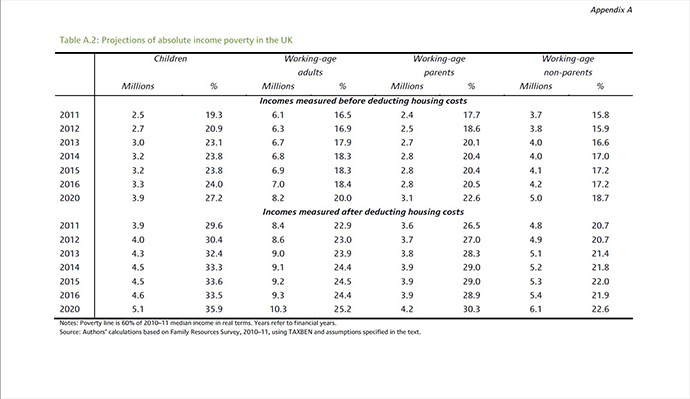
The study was commissioned by the Northern Ireland Executive to assess poverty levels in the region, but it also examined the UK as a whole.
“The impact on an entire generation of children could be
devastating, both in terms of their immediate wellbeing and their
longer-term lack of opportunities," the head of Save the
Children Scotland, Neil Mathers, said.
However, officials caution that the research’s conclusions may be premature. "The IFS analysis does not fully take into account the dynamic and behavioral changes that will result from our welfare reforms," a Department for Work and Pensions spokesperson told Huffington Post. "In fact, the changes under Universal Credit will make 3 million households better off and lift up to 250,000 children out of poverty."
‘Universal Credit’ is a new welfare benefit in the UK that will
replace a number of the main benefits and tax credits. The policy
has come under a harsh criticism due to a separate study by the TUC
and Child Poverty Action Group showing that 9 out of 10 families
will see no benefit from the new system.
